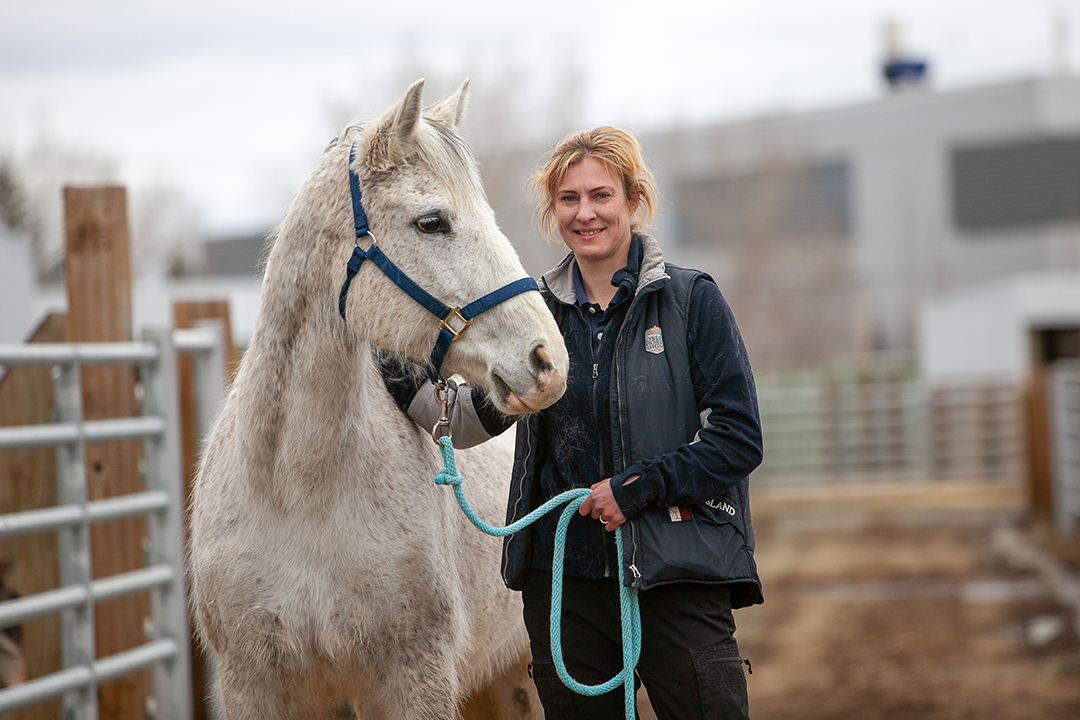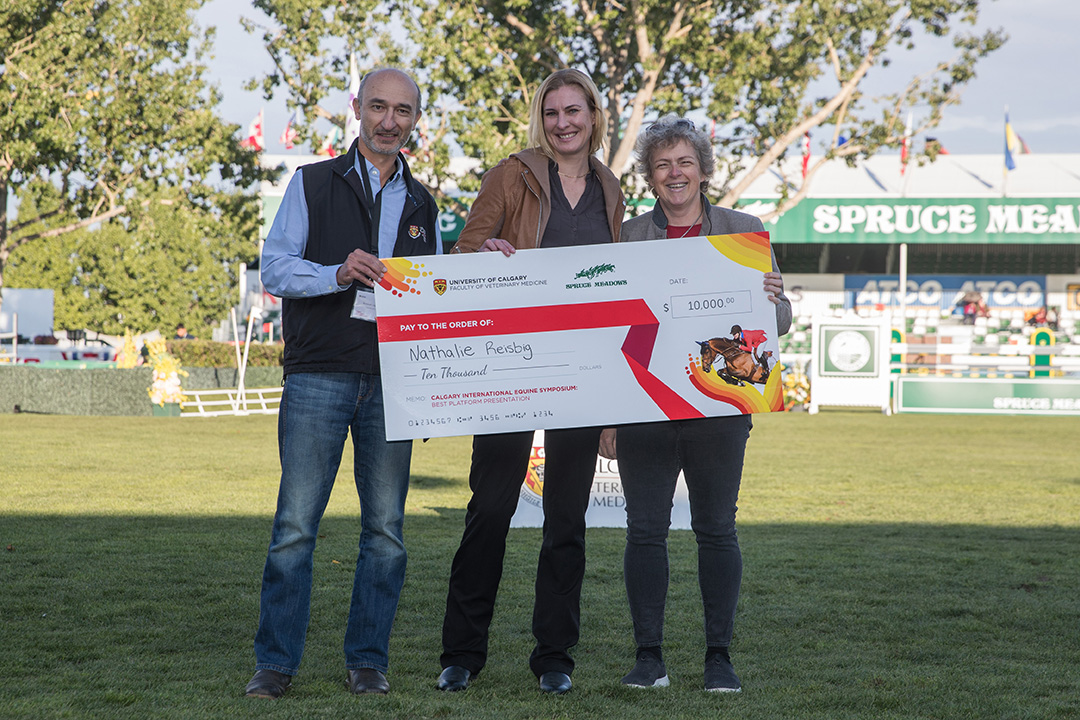
USask veterinarian earns top research prize
Dr. Nathalie Reisbig’s research work on an often-overlooked part of the equine anatomy earned the Western College of Veterinary Medicine veterinarian a top prize of $10,000 at the Calgary International Equine Symposium in September 2023.
By Cat ZensThe annual event, which is hosted by the University of Calgary’s Faculty of Veterinary Medicine, showcases equine sports medicine research from around the world and provides cash awards for the best research presentations.
Reisbig’s award-winning platform presentation covered her research team’s recent work on the equine temporomandibular joint (TMJ), which is often ignored as a potential pain source. All mammals – including humans — have these two joints that connect the lower jaw to the skull. In horses, these joints can experience additional stress when pressure is applied to the bit through rein tension.
Reisbig and her research colleagues investigated the effect of acute TMJ inflammation on rein tension and horse movement when horses were long-reined on a treadmill. Their study showed that under rigorous conditions, TMJ inflammation in a horse can be a source of rein contact avoidance. Their findings were published in Frontiers of Veterinary Science in June 2023.
“My presentation [at Calgary] very much focused on the rider’s side of it and ‘their feeling’ side of it — backed up by our objective data,” says Reisbig. Her research team included University of Saskatchewan scientists from the WCVM and the College of Kinesiology as well as an equine researcher at the University of Zurich in Switzerland.

Originally from Norway, Reisbig took her veterinary training in Germany before coming to North America where she completed a combined large animal surgical residency-master’s program and a PhD degree in regenerative medicine at The Ohio State University.
Reisbig and her WCVM colleague, Dr. James Carmalt, are continuing to study the role of TMJ in relation to chronic pain in horses and treatment options. When she isn’t conducting research, Reisbig works as a clinical associate and member of the equine field service team at the WCVM Veterinary Medical Centre — a role that she has held since May 2022.
“When I did my PhD work, I was doing 90 per cent research and I wasn’t happy because I was missing the reality,” says Reisbig, who enjoys the hands-on aspects of equine practice. “Now I’m seeing what is actually going on and I can form the questions needed for research rather than doing research on things that might not actually be a problem to solve.”
Reisbig is passionate about her research directly tying into equine welfare — about improving horse health care and not settling for “good enough.” In recognition of her commitment to responsible horse health care, the Saskatchewan Horse Federation presented Reisbig with its Award of Distinction in Equine Welfare in March 2023.
Reisbig is grateful for the accolades and credits the industry’s support for helping her become more focused on addressing her patients’ smaller health issues before they become bigger — the essential goal of equine sport medicine.
“I’m focusing a lot more on talking to the riders about how the horse has changed,” says Reisbig. “If you can be on top of it [when treating] a tiny, tiny problem, then you can actually keep a horse happy and working and healthy for much longer.”
Cat Zens of North Battleford, Sask., is a fourth-year student in the University of Regina’s School of Journalism. She worked as a WCVM research communications intern in 2023.
Click here to read more equine health stories in the Spring 2024 issue of Horse Health Lines, newsletter for the Townsend Equine Health Research Fund (TEHRF).
